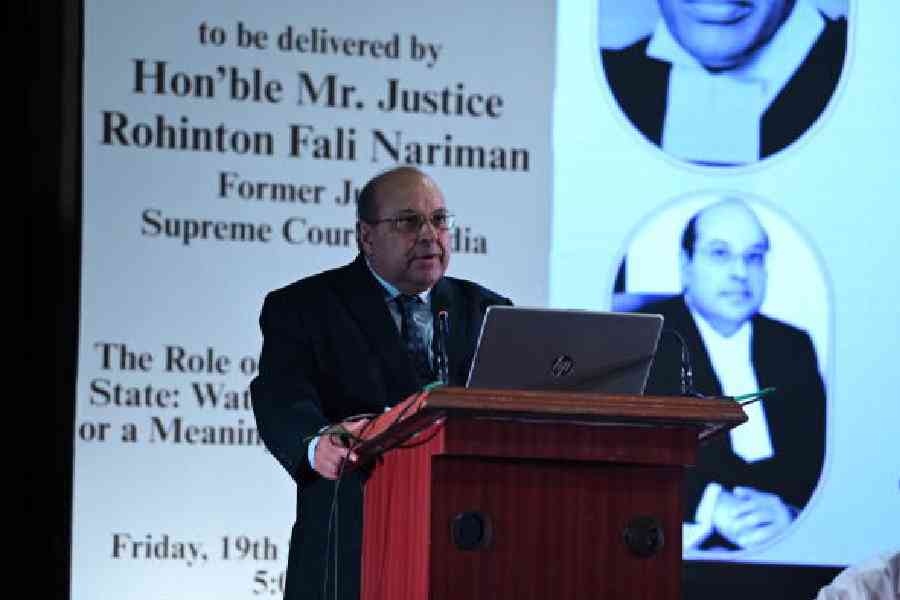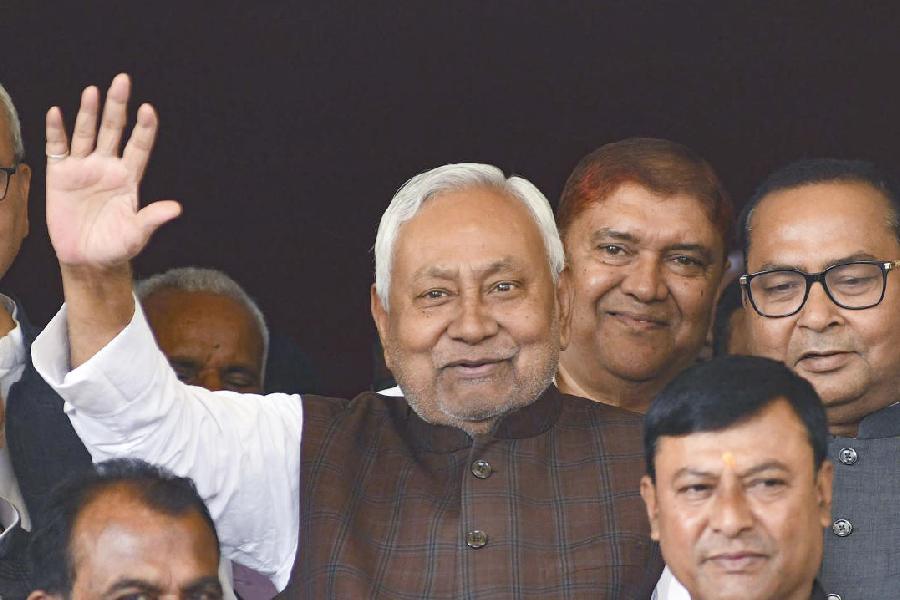Former Supreme Court judge Rohinton Fali Nariman, speaking at the West Bengal National University of Juridical Sciences (NUJS) on Friday, emphasised that a state governor is constitutionally bound to act on the “aid and advice” of the state cabinet.
Addressing an audience of law students and faculty, Nariman spoke about the governor’s role, highlighting that the governor cannot withhold assent to bills passed by the state legislature.
In the seventh M. K. Nambyar lecture, titled “The role of a Governor of a State; Watchdog of the Centre or a Meaningful Head of the State,” Nariman stressed that a governor must prioritise the “welfare of the people” and cannot act as an agent of the Centre while discharging constitutional duties.
“Be it the President or governor, they have to act on the aid and advice of the cabinet,” explained Nariman.
Contentious disputes have recently emerged involving governors in states like Tamil Nadu and West Bengal, where legal battles are ongoing to define the scope of a governor’s powers. The Mamata Banerjee-led Bengal government has accused Governor C.V. Ananda Bose of disregarding the state cabinet’s advice by delaying assent on several bills.
Drawing on a Supreme Court judgment related to Tamil Nadu, Nariman recounted how the governor there tried to circumvent his limited powers by forwarding 10 bills directly to the President instead of giving assent.
“Ten bills... all had been sent back to the governor by the legislative Assembly, and the only option for the governor was to assent. But instead of assenting, there was a wholesale reference to the President. As a result, the entire electoral mandate of the state got blocked. The Supreme Court came down very hard on this. The Supreme Court said ‘if something is sent back, the governor has no veto power. He has to assent finally’,” Nariman said.
The former Supreme Court judge said that the governor of Tamil Nadu thought of an “ingenious way” to get around the veto, and all the bills were sent directly to the President.
Nariman explained Article 200 of the Constitution, which outlines three options available to a governor on bills passed by the state legislature: assent, return for reconsideration, or send to the President. “There is no fourth option for a governor or a President to sit on the bills. If you really wait out the bills, you will be thwarting the entire legislative exercise that was done by the elected representatives of a state,” he said.
Highlighting the Supreme Court’s intent to enforce reasonable timelines for governors’ decisions, Nariman said: “Every action has to be performed within a reasonable time... and the Supreme Court is deciding in its wisdom to lay down the timeline.”
He reiterated that governors are “conditioned entirely by the aid and advice given by the cabinet,” meaning they must follow the state government’s directions regarding bills.
The Bengal government has accused the governor of not approving the Aparajita Bill passed by the Assembly following the brutal rape and murder of a junior doctor of RG Kar Medical College and Hospital in August 2024. Governor Bose did not grant assent and instead referred it to the President.
In February, a delegation of Trinamool Congress MPs met President Droupadi Murmu, urging prompt approval of the Aparajita Bill. In July, the Union home ministry objected to the bill, citing changes to the Bharatiya Nyay Sanhita (BNS), sources said. The governor has sent the bill back to the state government for reconsideration in the light of the Centre’s concerns.










